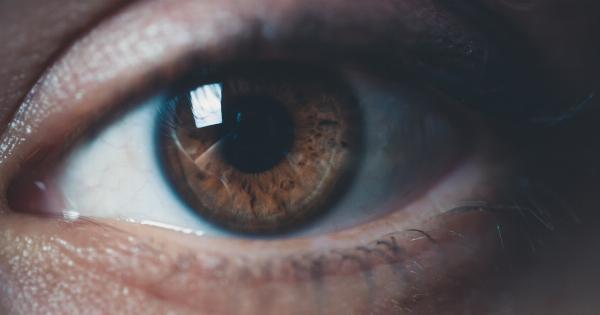Our eyes are one of the most vital organs in our body and are responsible for providing us with vision. They are delicate and complex and require special care.
Eye problems can range from minor ones that can be treated with over-the-counter remedies to major ones that require surgery. In some cases, an eye problem could indicate an underlying medical condition that needs urgent attention. Here are some signs that your eye problem may be serious:.
1. Blurred Vision
Blurred vision could be a sign of numerous eye problems, such as dry eye syndrome, cataracts, glaucoma, macular degeneration, or a detached retina. It could also indicate underlying medical conditions such as diabetes, multiple sclerosis, or a stroke.
If your vision is cloudy or fuzzy, get in touch with an ophthalmologist.
2. Red Eyes
Red eyes could mean anything from lack of sleep to conjunctivitis (pink eye), but they could also be an indication of severe conditions such as uveitis, scleritis, or keratitis.
If your eyes are red and painful or you experience vision changes, it’s important to get checked out by a professional straight away.
3. Floaters and Flashing Lights
Occasional floaters are normal, but if you start experiencing them on a daily basis, along with flashing lights, they could indicate a serious issue like a retinal tear or detachment. If left untreated, this could lead to permanent vision impairment.
It’s essential to see an eye doctor immediately if you experience these symptoms.
4. Eye Pain
Eye pain is never normal and could point to a range of eye problems. Corneal abrasions, infections, and glaucoma can all cause severe eye pain.
If you experience this, it’s important to see an eye doctor right away for proper diagnosis and treatment. Delaying treatment could lead to permanent vision loss, in some cases.
5. Sensitivity to Light
While sensitivity to light is common in some cases of migraine headaches and viral infections, it could also be an indication of an eye problem such as an inflammation of the iris, a corneal abrasion, or even a tumor.
If you experience eye pain, redness, and excessive light sensitivity, get medical attention immediately.
6. Gradual Loss of Vision
If you experience a gradual loss of vision, especially in one eye, it’s essential to see an ophthalmologist for a comprehensive eye exam. This could indicate a range of conditions such as cataracts, glaucoma, or macular degeneration.
Early detection is crucial to prevent permanent vision loss.
7. Double Vision
Double vision could indicate a severe issue such as a stroke, aneurysm, or brain tumor. It could also be a sign of a problem with the eye muscles or nerves. If you experience sudden double vision, seek medical attention right away.
8. Eye Discharge
While slimy eye discharge could be caused by allergies, watery or bloody eye discharge could be a sign of an underlying infection. If you experience discharge and pain or eye redness, it’s important to seek medical attention immediately.
9. Unequal Pupil Size
If your pupils are not of the same size, this could indicate a problem with the brain or nerves.
Anisocoria, the medical term for unequal pupil size, requires a thorough eye examination by an eye doctor, following which you may need a referral to a neurologist for further diagnosis and treatment.
10. Changes to the Appearance of the Eye
Any changes to the appearance of your eyes could indicate an underlying problem. Yellowing eyes could indicate liver disease, bulging eyes may be a sign of Grave’s disease, and drooping eyelids could be due to nerve damage or stroke.
If you experience any changes in the appearance of your eyes, see an ophthalmologist right away.





























